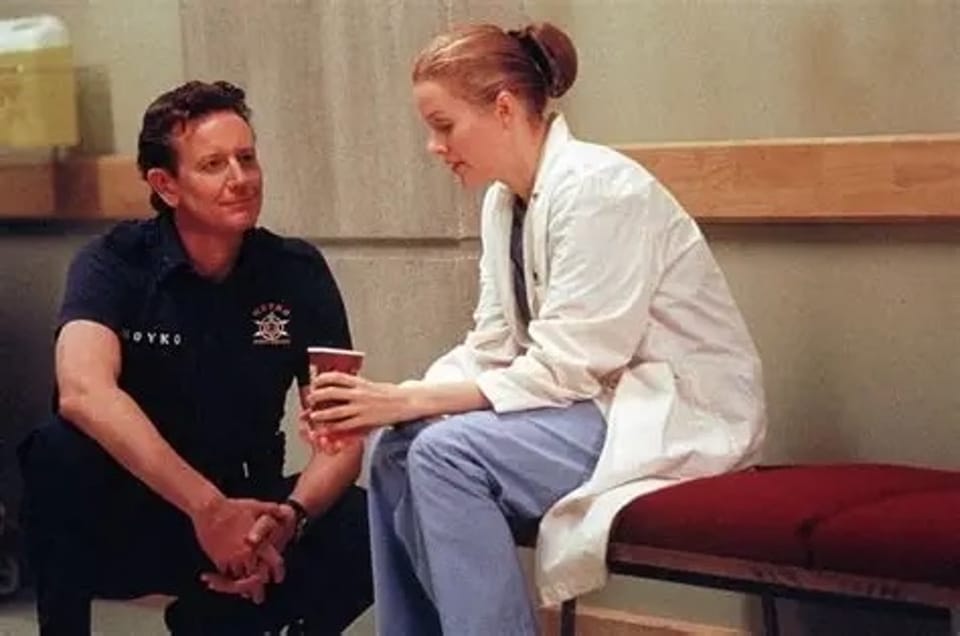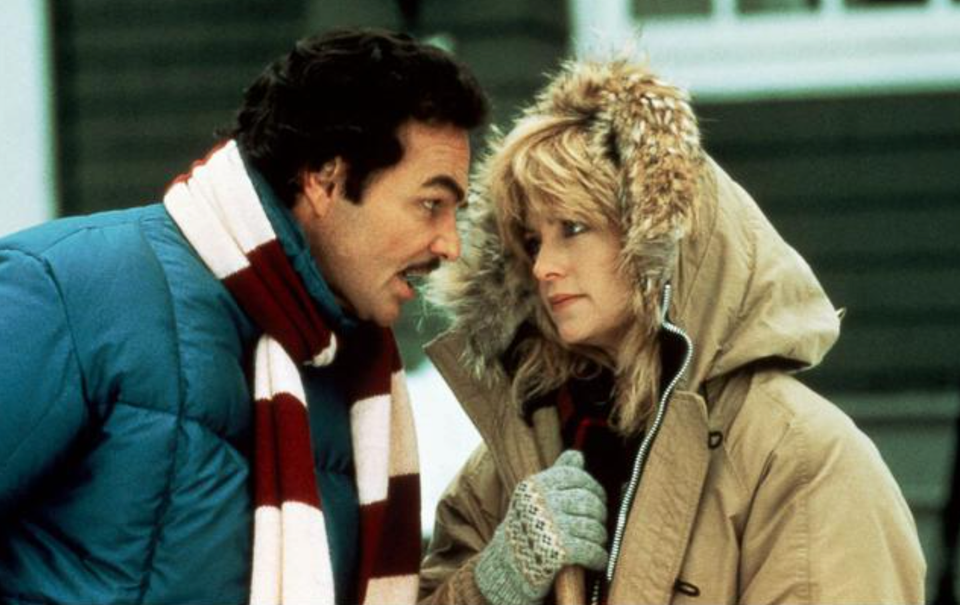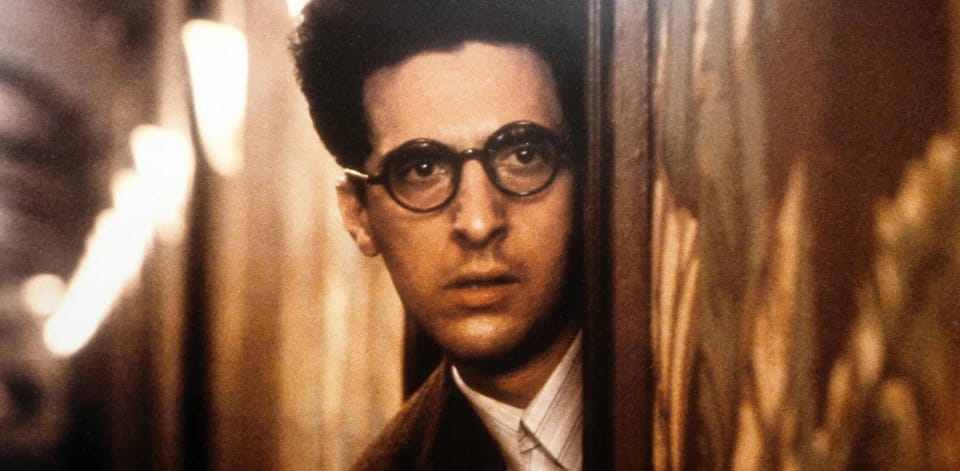Pay attention to page count.
It can feel like page count is the enemy. It isn't. It's a limitation that often forces you to be better.

The Story and Plot Weekly Email is published every Tuesday morning. Don't miss another one.
Any time a reader first picks up your screenplay, they do two things.
And this is true whether it's digital or a hard copy.
The first thing they do is check the page count.
Every time.
The next thing they do is check the density of the writing. Is it big, thick paragraphs, or a lot of white space?
They do this because experience has shown them that this is an effective way to gauge what their experience will be like.
Is it always reliable? Nope.
Is it pretty reliable? Absolutely.
Because the page count matters.
Don't let any psycho tell you it doesn't.
There is a reason that many companies insist on a maximum page count in your agreement.
The only question is how much it matters, and in what way it matters in the moment.
For a spec script, it matters because of the reader's experience.
This isn't always fair, but what is?
Readers know most screenplays are tough reads, and odds are that the unknown screenplay they're about to read is one of them.
They've also read far too many screenplays that were 20 pages longer than they needed to be.
So when they see 118 pages, they know odds are more likely than not that this writer didn't know, or didn't care to put forth the effort to make it shorter.
It's harsh, but it comes from experience.
Yes, you can win the reader over.
That's the good news. They'll know if you can write or not pretty quickly, and they'll forget about the page count as long as the screenplay doesn't start to meander.
But longer screenplays tend to meander more than shorter screenplays
And when it does, the relationship between the storyteller and the reader gets strained.
The resentment grows. There is a sense that the writer didn't put in the extra work, so now the reader has to.
And once a reader becomes unforgiving, it's extremely difficult to get them back to relaxing and enjoying the story.
Late in the production process, budget will be a key element.
A lot of factors contribute to this, but in general, more pages often mean more days. More days mean more money.
It's a bigger deal with smaller budgets, but it's a good problem to have.
So worry about this one later.
Don't worry about the 1 page = 1 minute rule.
It's mostly irrelevant outside of television. Additionally, the writer's style and the production team's style are significant variables in this regard.
For features, screen time is not a concern at this stage.
As the writer, the page count can send you signals to where you need to focus your energy.
It can feel like page count is the enemy. It isn't. And it can feel like a limitation sometimes.
But like budget, it's a limitation that is often forcing you to be better. It's pushing you to be more efficient and more imaginative.
Accept that it matters.
Whether you think it's fair or not that page count matters is irrelevant. This is the biggest mistake we make early on.
Because we think it shouldn't matter, we decide it doesn't matter to us.
This is self-sabotage disguised as self-protection.
Rejecting someone before they reject you may feel better, but the potential deal is still rejected.
Just remember, page count is a signal. Not a directive.
It points to something that might be a problem, but it might not!
I am a fan of targets, but the idea that the inciting incident or the Act 1 break should come at a specific page is, of course, ridiculous.
I am much harder on myself about this stuff than I am on others. Probably because I do get a silly thrill when the midpoint is precisely at the midpoint.
But as a producer or a teacher, I have more objectivity to point out the obvious: it's irrelevant. Sure, it may point to an issue of narrative momentum.
But it may not.
I have some quick guidelines about genres and page count.
There is an important point about this that I will come back to in a bit.
These are my usual targets for each genre:
- For less substantial horror and comedy: 104 pages or less.
- For more substantial horror and comedy: 114 pages.
- For action films: 110 pages.
- For dramas: 118 pages.
- For animation: 100 pages.
Now, to that point I wanted to mention:
I am making all of this up.
These numbers are random.
I was told something similar by a producer many years ago, and he was making it up, too.
Yet, it helps to have that target. It helps to know the rhythm you want for the piece. It helps to be intentional about every word and ask if it really, truly is worth the real estate.
But it is a random target.
The rewrite for my old screenplay came in at 130 pages.
That's too long to solely trim around the edges. I can cut 10 pages that way, but cutting 14-18 pages by trimming action lines and dialog risks ripping the life out of something.
I once did that to a movie that was about to go into production. It was shorter, but it was lifeless. It didn't turn out well. And I was the director.
This kind of cut needs scenes and plot to be cut or rewritten.
Here is a big-picture exercise I do.
I go through every act and every sequence, and I look for anomalies.
It's a dense sci-fi film noir, so I don't mind a longer page count here. My target count is 112 pages. Again, that is a made-up number.
But it gives me a target. Like, "I want to lose 10 pounds."
Why not 12? Because I said 10, that's why.
The producer said he'd be happy with 120 pages, and he may ultimately be right, but that's not my goal.
If the target is 112 pages, that means each act (Act 1, 2A, 2B, and 3) will be 28 pages long.
Here is how the 130-page script count broke down:
- Act 1: 1-34 | 34 Pages
- Act 2A 35-68 | 34 Pages
- Act 2B 69-103 | 35 Pages
- Act 3 104 - 130 | 26 Pages
The first three acts are pretty consistent. 34 pages each.
Act 3 comes in at 26, so I don't have to spend too much energy there. I can do a quick pass, and if I like it, I can leave it alone. At least in this page cutting stage. If I can make cuts, I will. But it's a lower priority now.
What about the sequences?
Two sequences in each act should be 14 pages each. This is how it broke down:
- Sequence 1 | 21 Pages
- Sequence 2 | 12 Pages
- Sequence 3 | 8 Pages
- Sequence 4 | 23 Pages
- Sequence 5 | 28 Pages
- Sequence 6 | 5 Pages
- Sequence 7 | 12 Pages
- Sequence 8 | 13 Pages
Remember our definition of structure:
STRUCTURE: Choosing what the audience knows and when they know it in order to maximize narrative momentum and emotional resonance.
It is narrative momentum and emotional resonance that we judge, not the page numbers.
The page numbers are signals.
They tell us where to look, not what to do.
For example, Act 1 is the act most likely to be longer than the others. Not surprisingly, Sequence 1 is the most likely to be the longest sequence.
Sequences 5 and 7 will often go long as well, and that means Sequences 2, 6, and 8 will often be short!
What matters is narrative momentum and emotional resonance.
Stories have rhythms. The audience adjusts to the pacing of the storytelling. You can, of course, use this against them, but you are more likely to annoy the audience if they expect narrative shifts that are late to arrive.
A lack of control of the narrative pacing is how screenplays get reactions like, "It ended so quick!", "It took forever to get started!" or "It slowed in the middle, but picked up pace again."
So what do the signals tell us?
Well, the first place I looked for cuts was Sequence 4.
23 pages is a lot of pages just to get us from C to D.
Sure enough, there was a 6-page sequence that didn't earn its keep.
It doesn't require that much space for the narrative needs, and it's not a thrilling enough sequence to justify 5% of the script.
I am not going to just trim it. I am going to rewrite it to be simpler. Hopefully, do it in 4, far superior pages.
There was also an extra scene that I could easily combine with another. Too much back and forth rather than moving forward.
Sequence 5 is the next sequence of interest.
A long sequence 5 is not uncommon, but 28 pages is a whole act. A quick review, and it's clear there are definitely some extra story beats.
They're not as obvious as the one in sequence 4, which stood out because it wasn't very good, but they're definitely there.
There are also two action scenes in sequence 5. Neither one is crucial, but they're fun and full of tension, and show how desperate the protagonist is.
They'll be hard to cut.
Why am I not so worried about Act 1 and sequence 1?
I did reduce Act 1 to 32 pages, but I did it through trimming and more efficient writing.
But I'm not redesigning it yet, because it largely works. It moves. It opens with a big 6-page action scene and another 9 pages dealing with the emotional aftermath.
We introduce a brand new world on page 24, and that feels like the end of Act 1 from a narrative standpoint, even though, according to my definition, the end of Act 1 doesn't really come until page 32.
Since it doesn't feel slow, I don't really care about the page count.
Every story has its own integrity.
A feature screenplay can be as long as it needs to be. Like everything, the key is to be intentional, because it shouldn't be longer than it needs to be.
Your page count matters for two primary reasons:
- It affects the initial emotional relationship between the screenplay and the reader. This relationship is not permanent. The quality of the writing will determine its from there, but if there are too many pages, it goes downhill faster.
- It's a valuable, but imprecise signal that the writing is not as efficient as it could be. Pay attention to the signal, but don't be controlled by it.
The Story and Plot Weekly Email is published every Tuesday morning. Don't miss another one.
When you're ready, these are ways I can help you:
WORK WITH ME 1:1
1-on-1 Coaching | Screenplay Consultation
TAKE A COURSE
Mastering Structure | Idea To Outline




